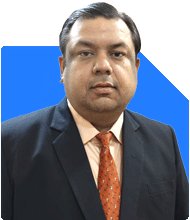Hello Sir
I am 44 years old & my monthly salary is 1.22 Lacs.. Which tax regime should I choose considering there is no Home, education or Battery car loan for me.. I invest under Sec 80cc appriox. 1.5 Lacs a year
Ans: At 44 years old, you have a monthly salary of Rs 1.22 lakhs, and you’re making sound financial choices. You invest Rs 1.5 lakhs annually under Section 80C, which is a good start for your tax planning. You have no home loan, education loan, or battery car loan, which simplifies your tax planning decisions.
Choosing the right tax regime depends on your financial situation, goals, and the deductions you can claim. Both the old and new tax regimes have their advantages, and it's crucial to assess them based on your specific scenario.
Overview of the Old Tax Regime
The old tax regime allows you to claim various deductions under sections like 80C, 80D, 80G, and others. Since you are already investing Rs 1.5 lakhs under Section 80C, you’re making use of this regime's benefits. The old regime is beneficial for individuals who can claim substantial deductions. Here’s why it might work for you:
Deductions Under Section 80C: This section covers investments like PPF, EPF, life insurance premiums, and certain mutual funds. Your Rs 1.5 lakh investment here reduces your taxable income directly.
Health Insurance Deduction Under Section 80D: If you have health insurance, you can claim a deduction on the premium paid, up to Rs 25,000 for yourself and an additional Rs 25,000 for parents.
Standard Deduction: A standard deduction of Rs 50,000 is available under the old regime, further reducing your taxable income.
The old regime is ideal if you can maximize your deductions. Since you already have Rs 1.5 lakhs invested under Section 80C, you are on the right track. However, let’s explore the new tax regime to understand if it might suit you better.
Overview of the New Tax Regime
The new tax regime offers lower tax rates but doesn’t allow most deductions, including the Section 80C investment. The rates are structured to provide immediate tax relief without the need for extensive tax planning. Here’s how it could work for you:
No Need for Deductions: The new regime simplifies tax filing as it doesn’t require you to claim deductions. This can be beneficial if you prefer a straightforward approach without the need to track various investments and expenses.
Lower Tax Rates: The tax slabs under the new regime are broader and come with reduced rates. For someone earning Rs 1.22 lakhs per month, you might find yourself in a lower tax bracket, paying less tax overall if you don’t have substantial deductions to claim.
Flexibility in Spending: The new regime doesn’t tie you down to specific investments to save tax. This gives you the flexibility to spend or invest your money according to your financial goals rather than for tax-saving purposes.
Comparing the Two Regimes
Choosing between the old and new regimes involves comparing your taxable income under both. Here’s a general assessment based on your situation:
Old Regime: Your Rs 1.5 lakh investment under Section 80C reduces your taxable income significantly. If you have other deductions, like health insurance under Section 80D or donations under Section 80G, the old regime might be more beneficial. You also benefit from the standard deduction of Rs 50,000.
New Regime: If you prefer not to claim deductions or don’t have significant ones beyond Section 80C, the new regime might be simpler and potentially more tax-efficient. The lower tax rates could outweigh the lack of deductions.
Strategic Considerations
Here are some key points to consider when choosing your tax regime:
Evaluate Future Investments: If you plan to increase your investments under Section 80C or explore other deductions, the old regime may continue to benefit you.
Simplify Your Tax Filing: If you find tax planning cumbersome and prefer a simpler approach, the new regime offers that ease. However, you might pay slightly more in taxes if you forgo your deductions.
Long-Term Planning: Consider your long-term financial goals. If you plan to invest more for retirement or your children’s education, sticking with the old regime and maximizing your deductions might be the better choice.
Review Annually: Tax laws and your financial situation can change. It’s wise to review your choice annually and switch if necessary.
Final Insights
Your choice of tax regime should align with your financial strategy. The old tax regime is advantageous if you can utilize deductions effectively, particularly the Rs 1.5 lakh you’re already investing under Section 80C. This approach rewards disciplined saving and investment, which supports long-term wealth creation.
The new regime, while simpler, may not be as tax-efficient if you can claim substantial deductions under the old regime. However, it offers flexibility, allowing you to allocate funds without the pressure of tax-saving investments.
Given your current scenario, the old regime might be more beneficial if you can continue to optimize deductions. If simplicity is more important and you prefer not to focus on tax-saving investments, the new regime could be considered.
In either case, regularly reviewing your financial situation and tax strategy will help ensure you’re making the most of your income while planning for a secure future.
Best Regards,
K. Ramalingam, MBA, CFP,
Chief Financial Planner,
www.holisticinvestment.in


























